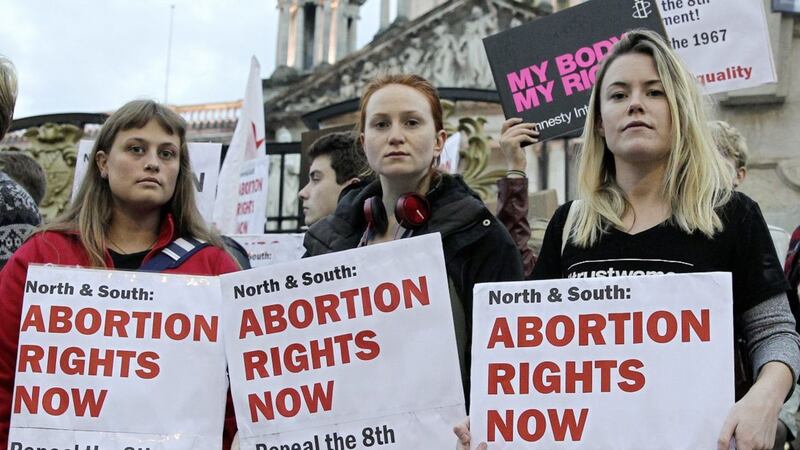Politicians have voted to end the constitutional restriction on abortion and give women access to the procedure up to 12 weeks into a pregnancy.
In a widely anticipated move, the Oireachtas Committee on the Eighth Amendment urged repeal of the hugely divisive Article 40.3.3 of the Constitution and that new laws be introduced to decriminalise terminations in some circumstances.
It is hoped the public will vote on the radical reform in a referendum next May.
The National Women's Council of Ireland said the changes would be seen as a breakthrough for women's health.
Orla O'Connor, director of the organisation, said: "This will be a crucial step to ensuring that doctors in Ireland will be able to care for all of women's and girls' healthcare needs.
"It is a clear recognition of the complexity of decisions in pregnancy and that these decisions are private and personal, never political. The person who can best protect a developing life is the pregnant woman, in consultation with her doctor, and not the Constitution."
Liam Herrick, executive director of the Irish Council for Civil Liberties, said the potential reforms are a great step forward to protect the rights of women and girls.
"International experience shows that, where access to abortion is legislated for in a very restrictive way, it frequently causes harm to health and serious distress to people seeking to access the service," he said.
Fourteen of the 21 politicians on the committee voted in favour of the repeal of the hugely divisive Eighth Amendment.
It was opposed by Senator Ronan Mullen, Fianna Fail TDs Anne Rabbitte and James Browne, Fine Gael TDs Hildegarde Naughton and Peter Fitzpatrick and Independent TD Mattie McGrath.
Chairman of the committee Catherine Noone abstained.
"As chair I thought it the most appropriate thing to do," she told the committee.
The committee, which has been considering the recommendations of the Citizens' Assembly and its calls to relax the strict limitations on abortion, will publish its report next week.
Taoiseach Leo Varadkar said he hoped the repeal issue could be put to a referendum in May next year.
As it stands, the 1983 Eighth Amendment of the Constitution affords equal rights to pregnant women and unborn children.
Terminations are only allowed when the life of the mother is at risk and the maximum penalty for accessing an illegal abortion is 14 years in prison.
More than 3,000 women travel each year to England and Wales for the procedure.
The committee held a series of votes on recommendations from the Citizens' Assembly and associated issues.
By a wide margin, the politicians supported legalisation of abortion if a woman's life or health is at risk and that a distinction should not be made between physical or mental health.
The proposal included a clause that the gestational time limits on abortion would be guided by the best medical evidence and be enshrined in law and that at least two specialist doctors would assess a woman seeking the procedure.
The committee backed calls to decriminalise the procurement of an abortion by a woman when it is carried out in a hospital or licensed clinic by a qualified doctor.
And it also supported the Citizens' Assembly recommendation for access to abortion after a diagnosis of a potentially fatal foetal abnormality.
On a related issue, the committee added that families in such circumstances should be treated with compassion and given the option of a termination if they received a diagnosis from a doctor acting in good faith.
Senator Noone switched from abstaining to vote in favour of that proposal, adding that she felt "so strongly".
The committee rejected a proposal that abortion should be allowed if a woman is diagnosed with a foetus with a significant but non life-threatening abnormality.
The committee did not back access to abortion without restriction to reasons up to 22 weeks and it also did not back access to terminations on socio-economic grounds.
Other reforms backed by the committee are for abortion to be legal in cases of rape; if there is a real and substantial physical risk to the life of the woman; a real and substantial risk to the life of the woman by suicide; and serious risk or risk to a woman's health.
Sinn Fein's two members on the committee abstained on the question of allowing abortion up to 12 weeks with no restrictions.
The Department of Health is already working on legislation to reform the strict limitations on abortion in anticipation of the committee's votes and report.





